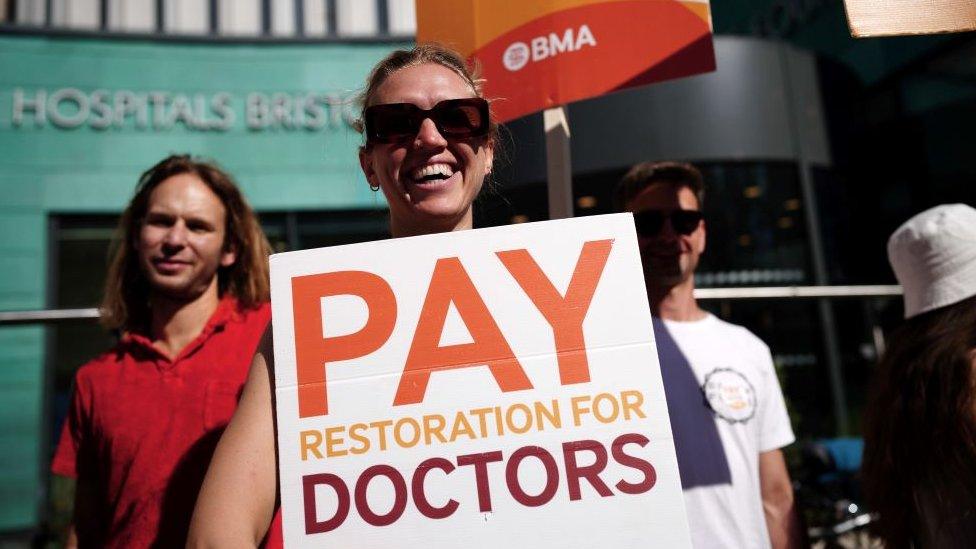Junior doctors strike for 10th time over pay dispute
- Published
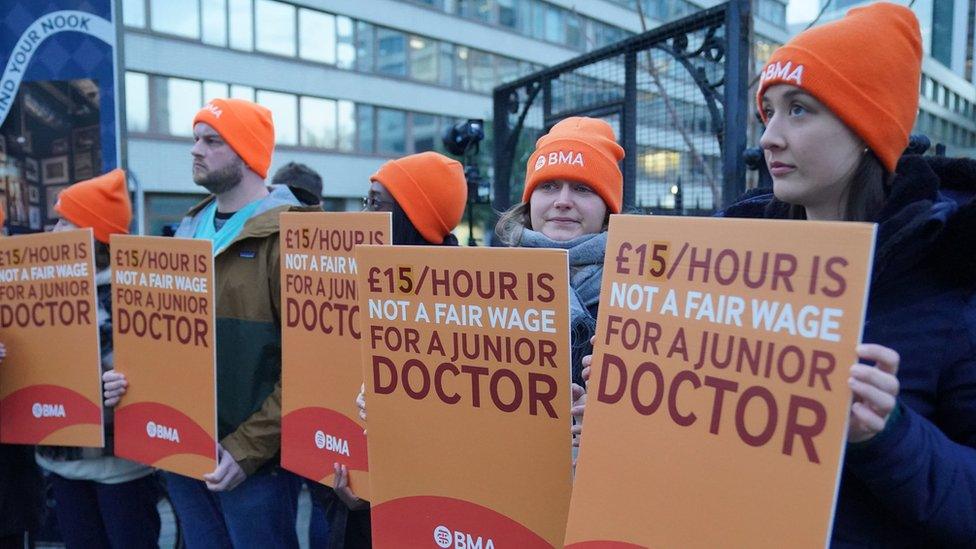
Junior doctors joined picket lines outside hospitals during a recent strike in January
Junior doctors in England are striking for the 10th time in their long-running pay dispute with the government.
The five-day walkout got under way at 07:00 GMT, with NHS bosses warning it will cause major disruption.
Hospital operations and check ups will be worst hit as half of doctors in hospitals are junior doctors.
The British Medical Association (BMA) has asked for a 35% pay rise, but ministers have described the pay claim as unreasonable.
Health Secretary Victoria Atkins said she was disappointed junior doctors were continuing with strike action.
"No-one should underestimate the impact these strikes have on our NHS. So again, I urge the BMA to call off their strikes," she said.
But BMA junior doctor leaders Dr Robert Laurenson and Dr Vivek Trivedi said: "The government could have stopped these strikes by simply making a credible pay offer to begin reversing the pay cuts they have inflicted upon us for more than a decade."
What do patients need to know?
Two-thirds of junior doctors are members of the BMA, although the much smaller Hospital Consultants and Specialists Association will also be taking part in strike action.
Routine hospital services are expected to face the most disruption because senior doctors are being drafted across to provide cover in emergency care.
NHS England is advising patients in a life-threatening emergency to call 999 as usual, but for everything else to use 111.
Patients who have routine appointments should attend as normal unless they have been told otherwise.
There is also expected to be some disruption to GP services.
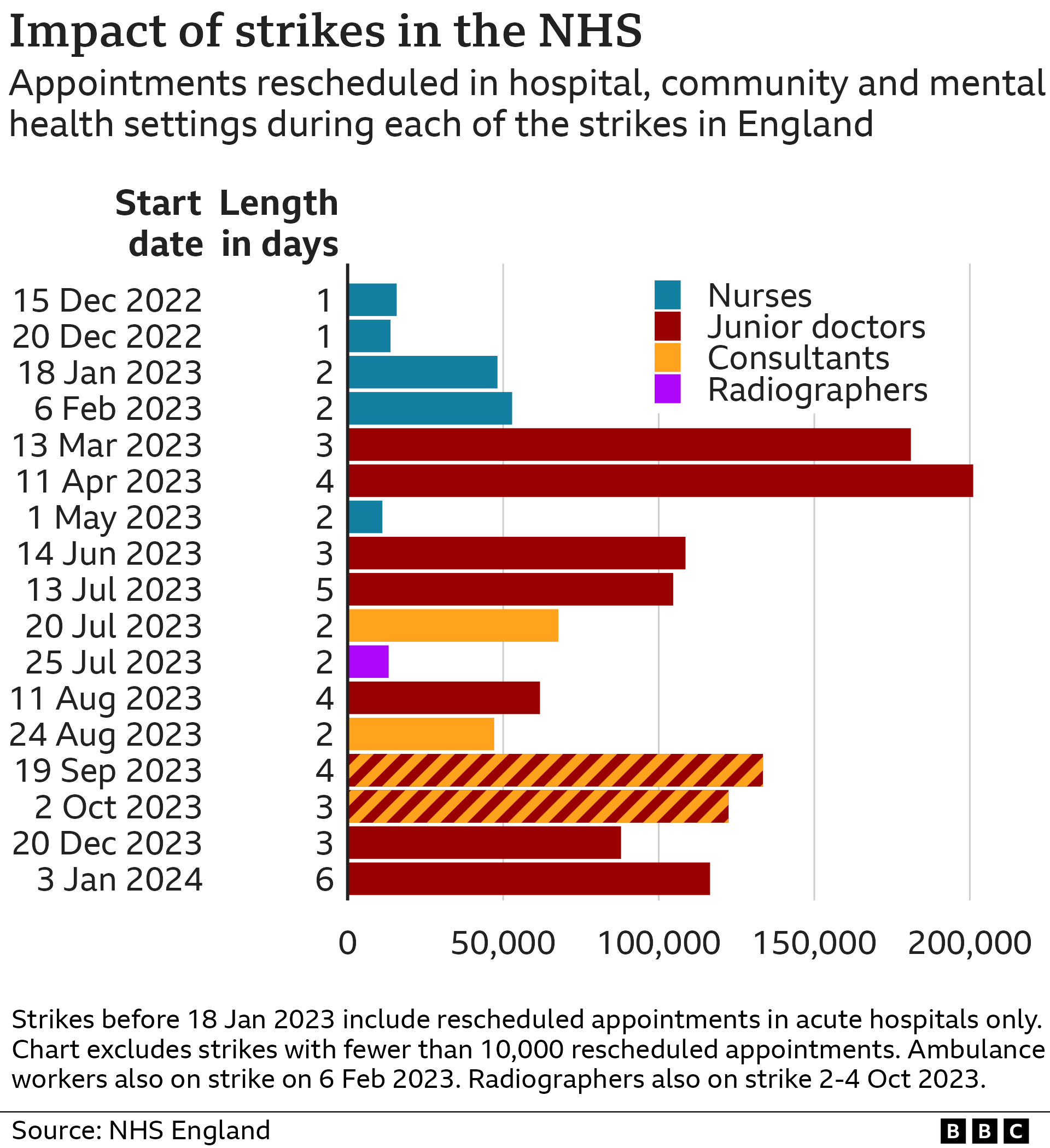
Matthew Taylor, chief executive of the NHS Confederation, which represents hospitals, said it was a "profoundly demoralising moment" for the health service.
He told Sky News on Saturday: "We know what the consequences of these strikes are… many appointments operations will have been cancelled, others will have to be cancelled, although I would say to people out there that if you have not been told that your appointment has been cancelled, then assume it will go ahead.
"I think what we would say to both sides is don't stand on ceremony - be imaginative. Maybe it's time for both sides to tell us what they would accept."
What do patients think?
This walkout marks almost a year of strikes by junior doctors - the first was in mid-March last year.
The latest polling from YouGov, external shows support for junior doctors has fallen since last year, but a majority still support them, 50% compared to 43% opposing.
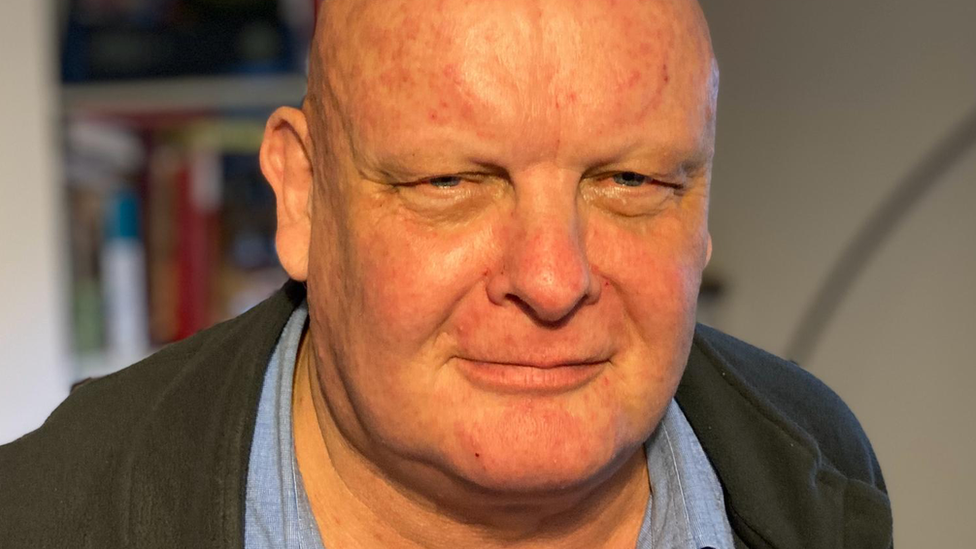
Nigel Hunt will still get his chemotherapy
Nigel Hunt, 60, is one of the lucky patients in that he has not faced disruption so far.
Nigel was diagnosed with bowel cancer last year and his treatment is keeping his cancer at bay at the moment.
He says his chemotherapy has fallen on a strike day previously and not been cancelled.
"I find myself having to both support and not support the junior doctors," he said.
"I support them because they have been treated badly and they do deserve a decent pay rise."
But he says when they do strike he worries his treatment will be affected so as a patient he has concerns.
Toni Rush, 34, from West Yorkshire, is less sympathetic. She was due to have an operation on an anal fissure on Wednesday, but this has now been put back to mid-March.
She has been struggling with the problem for a year.
"To have waited so long and to have the operation cancelled just like that… it's annoying and frustrating - and I'm by no means in the worst position," she said.
How far apart are the two sides?
Junior doctors received a pay rise averaging nearly 9% this financial year - and during talks at the end of last year, the option of an extra 3% on top of that was discussed.
But those talks ended in early December without a deal being reached.
The BMA is after 35% to make up for what it says is 15 years of below-inflation pay rises.
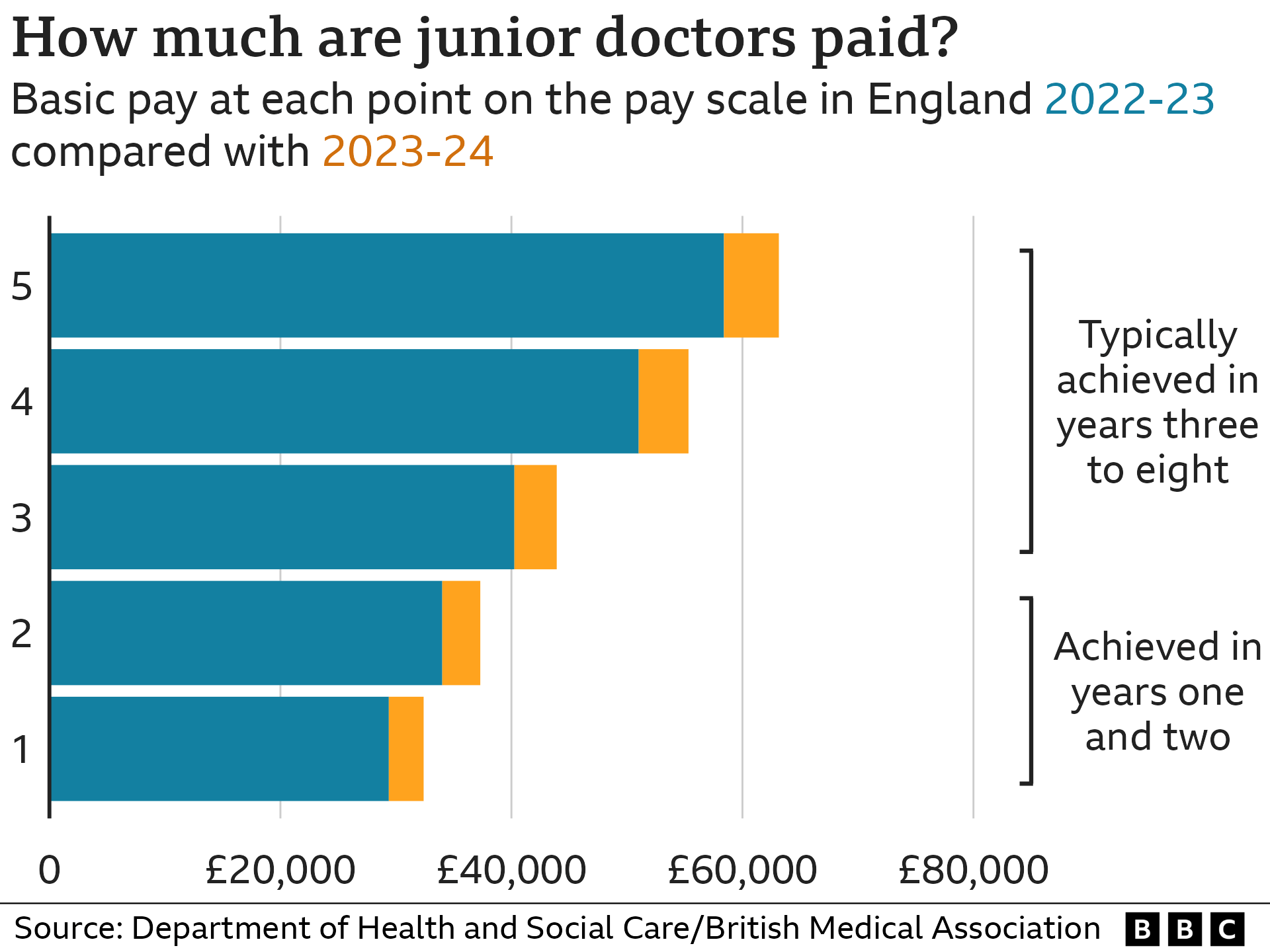
There have been no formal talks since those negotiations ended and the BMA is boycotting the pay review process for next year, refusing to provide evidence to the independent pay review body that makes recommendations on pay rises.
Instead, the union is balloting members for a new six-month strike mandate.
This strike is the last one the BMA can hold under the current mandate as it expires at the end of the month.
The results of the ballot are expected in late March.
Junior doctors in Wales also held a strike earlier this week, while in Northern Ireland they are planning to strike in early March.
Consultants in England have taken part in walkouts as well, but no further action is planned as talks take place between the government and the BMA. A fresh pay offer was narrowly rejected by BMA members last month.
Additional reporting by Kris Bramwell.
- Published6 January 2024
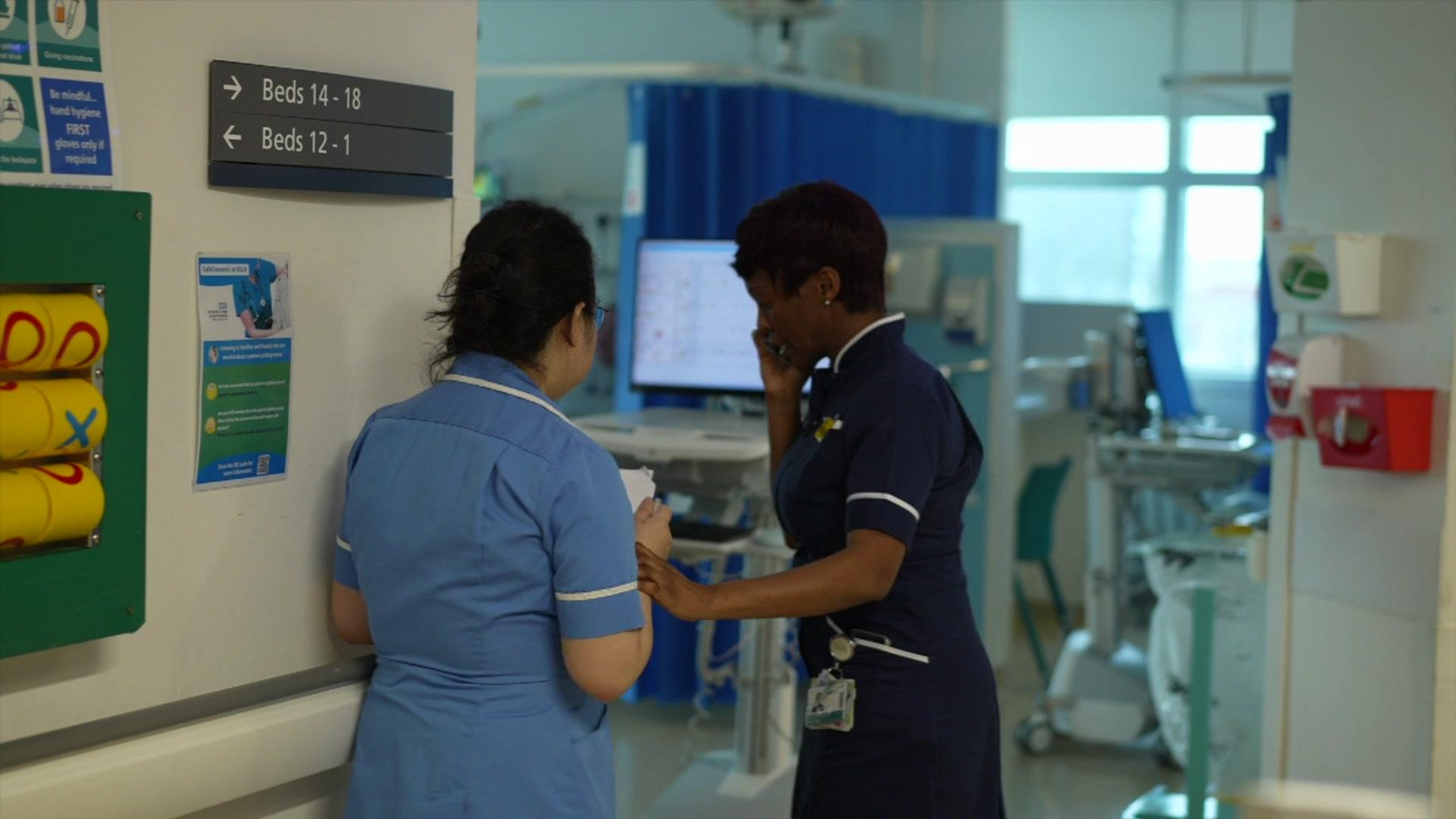
- Published4 January 2024
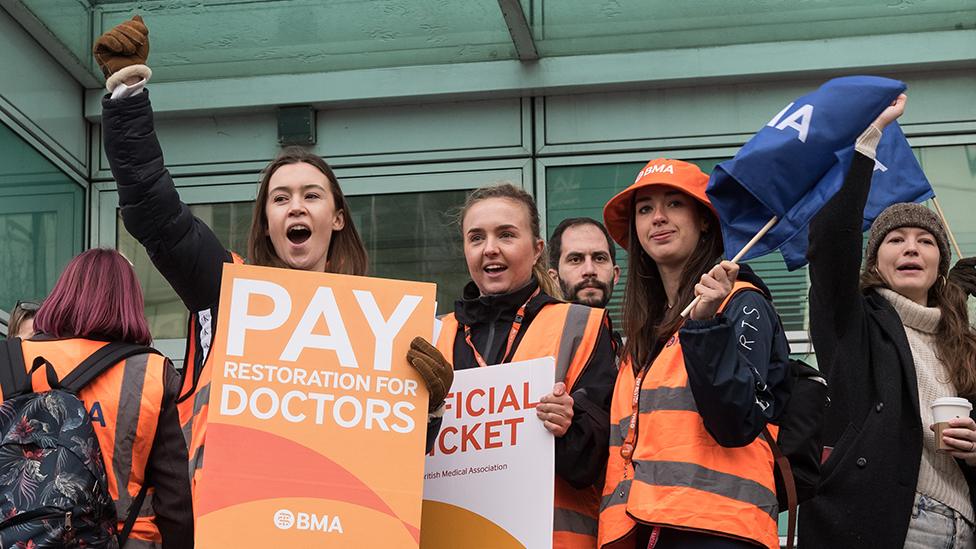
- Published3 January 2024
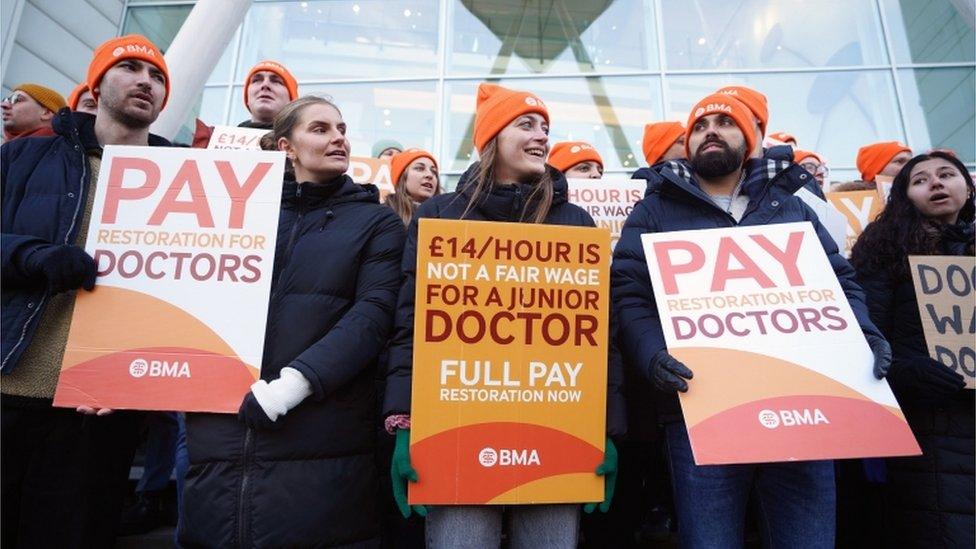
- Published5 December 2023
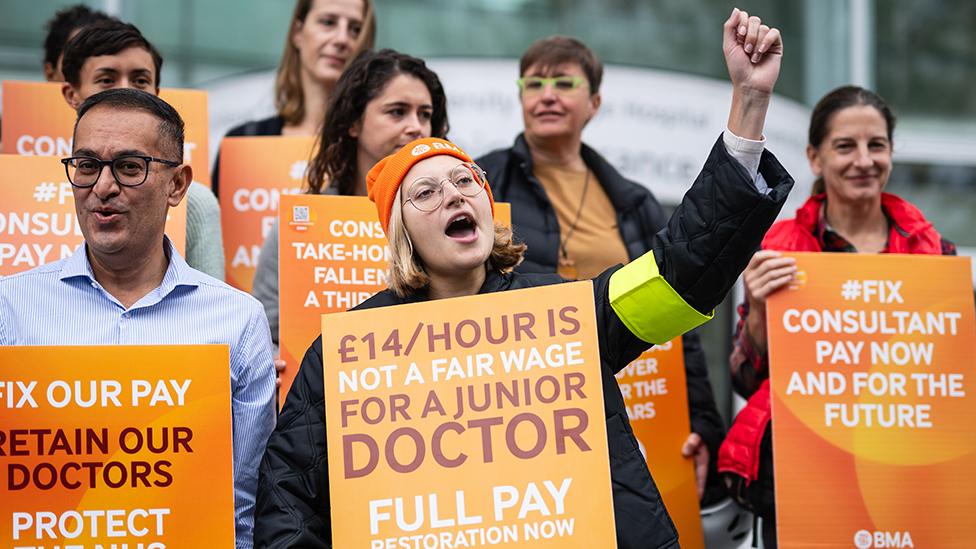
- Published27 December 2023
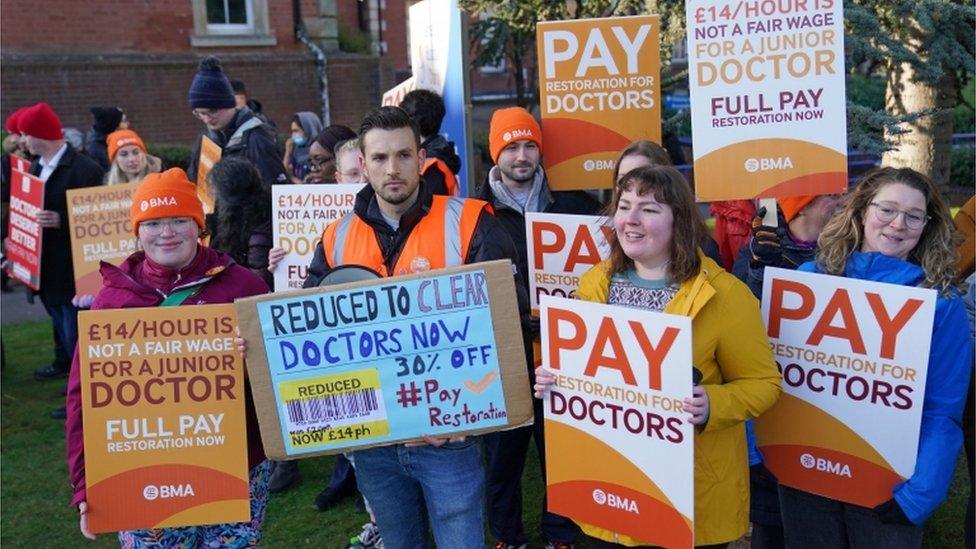
- Published25 September 2023
